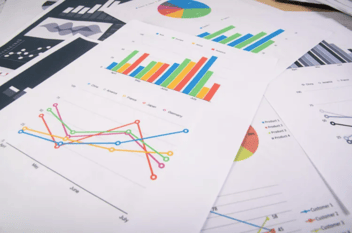Why Does My Organization Need to Standardize Data?
In today's data-driven world, organizations are inundated with vast amounts of information from various sources. Whether it's customer data, financial records, or operational metrics, data plays a pivotal role in decision-making and organizational strategies. However, this data is often collected and stored in different formats, structures, and standards, making it challenging to utilize it effectively. This is where data standardization comes into play.
Data standardization is organizing, formatting, and structuring data to ensure consistency and uniformity across the organization. It might not sound exciting, but standardizing data is a critical step in achieving data quality, accuracy, and usability.
Here are some excellent reasons why your organization should make it a priority to standardize its data:
Improved Data Quality
Inconsistent data can lead to errors, duplicates, and inaccuracies, resulting in poor decision-making and operational inefficiencies. Standardized data ensures data quality by defining a standard set of rules and guidelines for data entry and maintenance, reducing the risk of errors and inconsistencies.
Enhanced Data Integration
It's common for organizations to use a variety of different data sources and systems. Standardized data simplifies the integration process, allowing other systems to communicate seamlessly with the same formats and standards of data. This reduces the complexity and cost of data integration projects, making it easier to leverage data across the organization.
Better Reporting and Analysis
Standardized data allows for more straightforward and accurate reporting and analysis. With consistent data formats and structures, employees can access, interpret, and use data more efficiently. This, in turn, enables quicker decision-making and the identification of valuable insights.
Increased Collaboration
In organizations where data is standardized, teams can collaborate more effectively. Whether it's finance or facility management, standardized data ensures everyone works with the same information, facilitating cross-functional collaboration and alignment.
Regulatory Compliance
Many industries are subject to strict regulations and compliance requirements regarding data handling and reporting. Standardizing data ensures that your organization can meet these requirements more efficiently, reducing the risk of non-compliance and resulting penalties.
Enhanced Data Governance
Data governance is crucial for protecting sensitive information, ensuring data privacy, and managing data effectively. Standardized data forms the foundation of a robust data governance framework, making it easier to establish data ownership, access controls, and data retention policies.
Scalability
As your organization grows, so does the volume of data it generates and manages. Standardized data structures and processes are essential for scalability. They enable your organization to handle increasing amounts of data without experiencing data chaos or loss of efficiency.
Cost Savings
Inefficient data management and inconsistent data practices can lead to wasted time and resources. Standardizing data can result in cost savings by reducing the time and effort required to clean and transform data, as well as the resources spent on error correction and reconciliation.
Data standardization is not just a best practice; it's necessary for any organization seeking to harness the full potential of its data assets. By improving data quality, facilitating integration, enabling more straightforward reporting and analysis, and ensuring compliance, data standardization paves the way for better decision-making, increased efficiency, and sustainable growth.
.png?width=268&height=52&name=f1-logo2%20(1).png)



